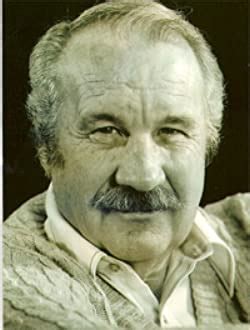A Quote by Mason Cooley
Ultimately, blind faith is the only kind.
Quote Topics
Related Quotes
It's a weak faith that only serves God in times of blessing. The book of Job teaches us that true faith, genuine faith, great faith is revealed only when we serve and trust God in the hard times, the times of suffering, loss, and opposition. That's the kind of faith that makes the world sit up and take notice.
The word 'religion' is only a label. What lies behind that, the most important thing of all, is the word 'faith'. You either have faith, or you don't have faith, or you have degrees of faith - and if you have degrees of faith, then you become agnostic. You're kind of in-between, or you're on the fence.
The Bible never tells us to take a blind leap of faith into the darkness and hope that there's somebody out there. The Bible calls us to jump out of the darkness and into the light. That is not a blind leap. The faith that the New Testament calls us to is a faith rooted and grounded in something that God makes clear is the truth.
The Middle Ages were an era of mysticism, ruled by blind faith and blind obedience to the dogma that faith is superior to reason. The Renaissance was specifically the rebirth of reason, the liberation of man's mind, the triumph of rationality over mysticism - a faltering, incomplete, but impassioned triumph that led to the birth of science, of individualism, of freedom.
We don't always possess faith in the sense of having a clear embodiment of something to hang on to. The relationship between the intellect and faith is a very curious one. Sometimes the intellect can point us to faith, sometimes the intellect can stand in the way of faith. Sometimes, as St John of the Cross points out, we have to darken or blind the intellect in order to have faith.
I am sympathetic to the kind of faith that does not evangelize or raise banners but is the faith drawn on by a lone human being as a means of support or as an organizing principle or even as mere practice. It is faith that is born of humility and an understanding of one's own frailty. I can recognize it because I have met many people who exhibit this kind of faith.





































